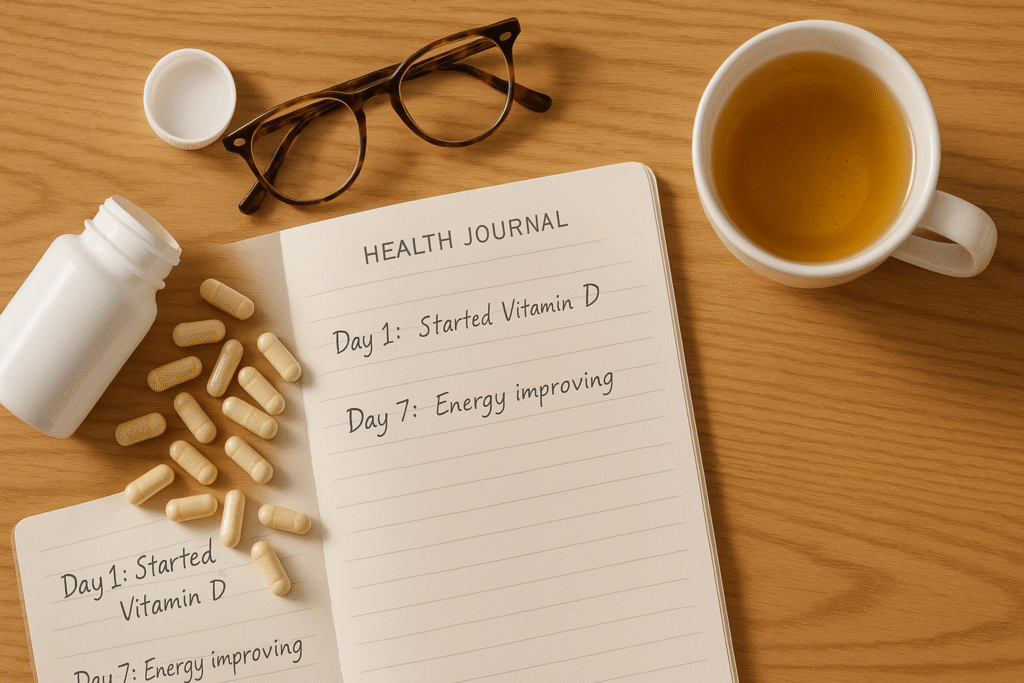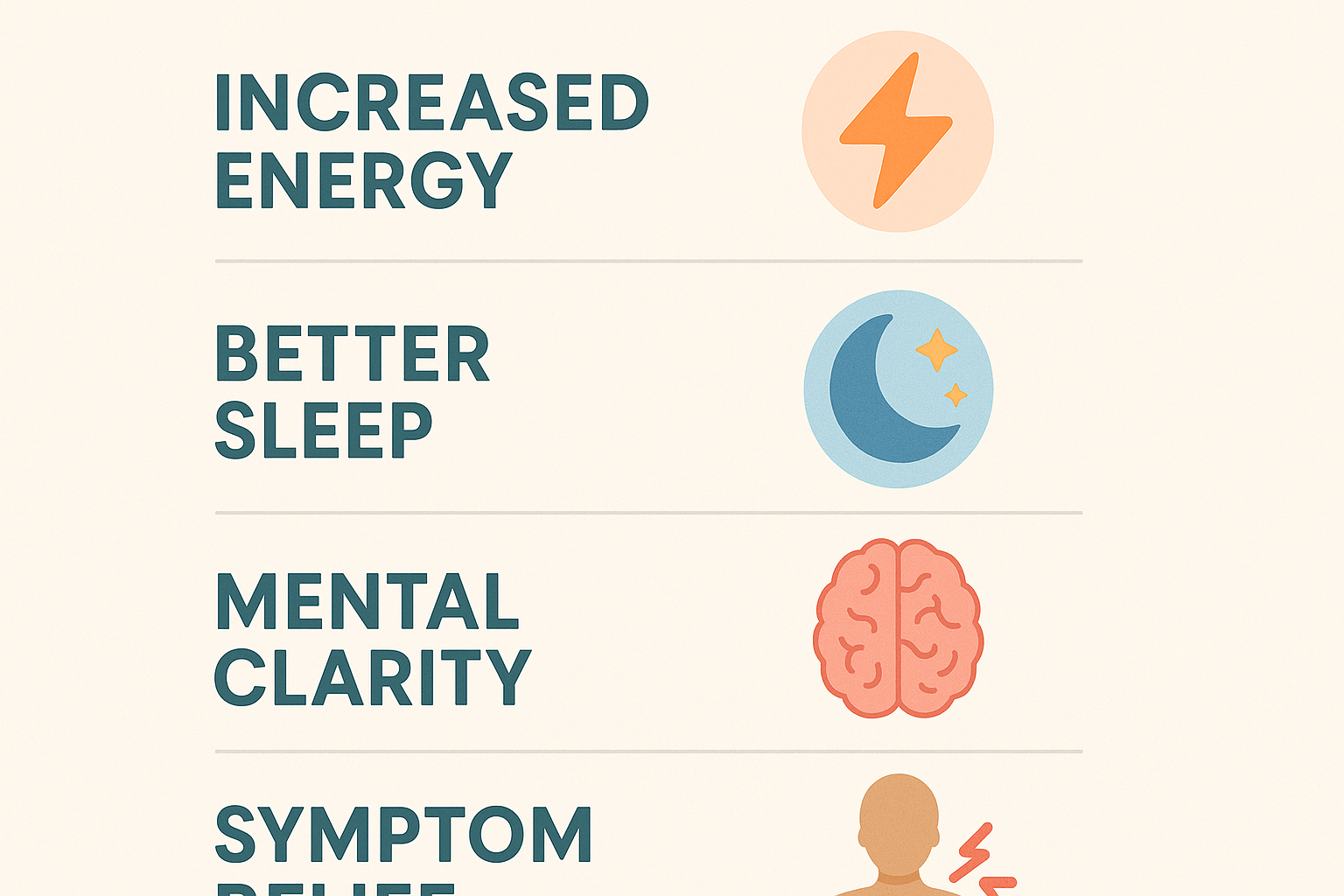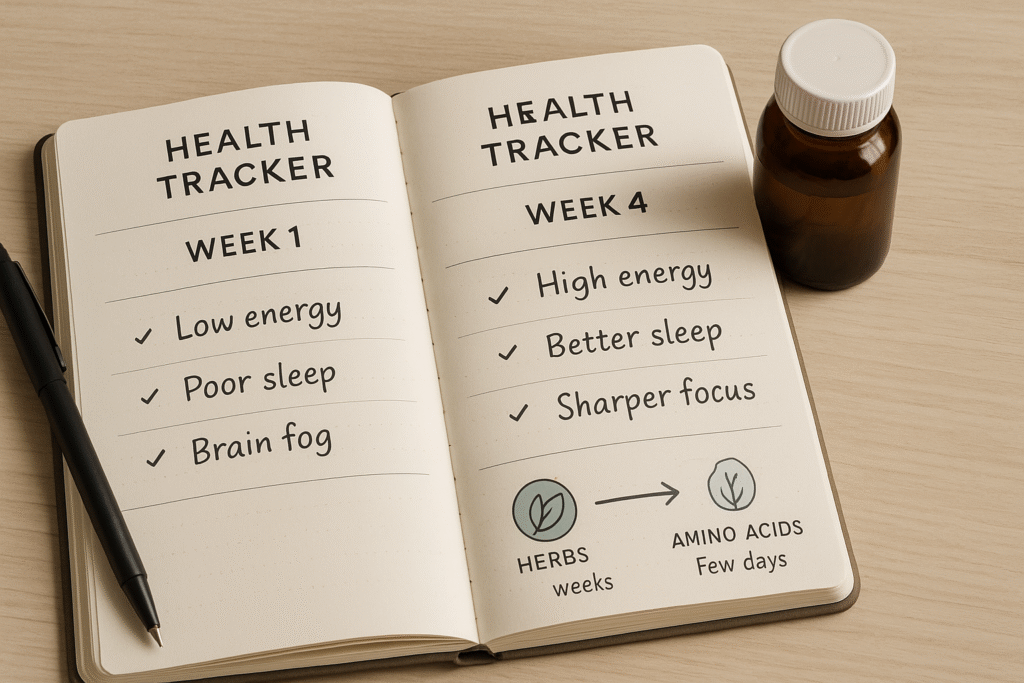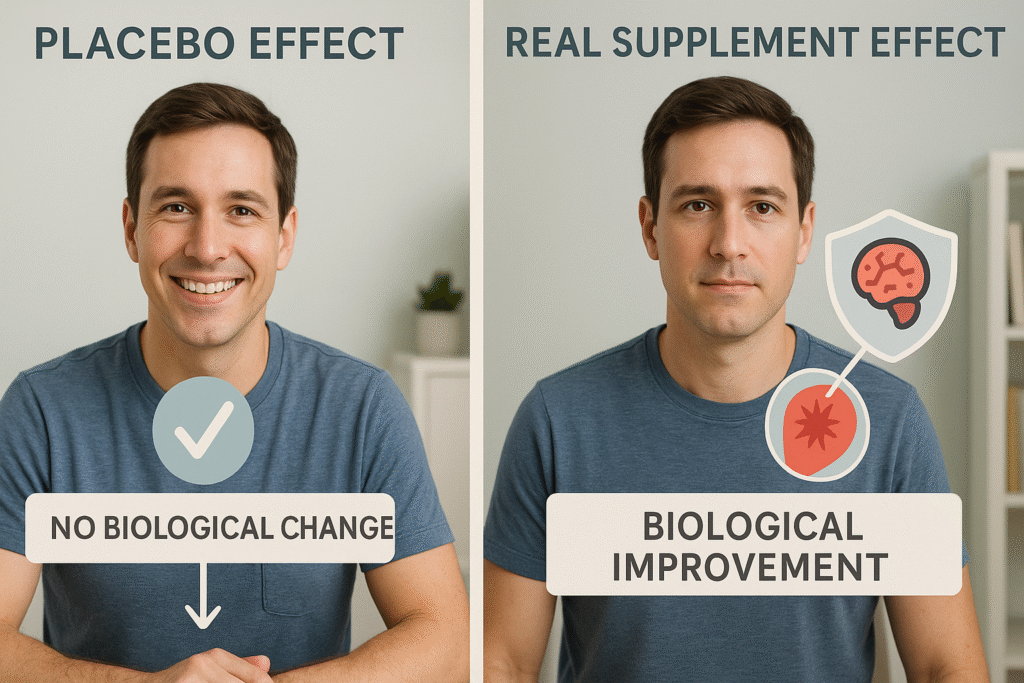Understanding the Role of Supplements in Your Health
What Are Supplements Meant to Do?
Supplements are designed to fill nutritional gaps, support bodily functions, and sometimes improve specific health conditions. They’re not magical fixes, but targeted tools—vitamins, minerals, herbs, amino acids, or enzymes—that work best when used correctly. People often turn to supplements to enhance immunity, improve energy, or address nutrient deficiencies.
The Science Behind Supplement Efficacy
For a supplement to truly work, it must be bioavailable, meaning your body can absorb and use it effectively. Scientific research evaluates efficacy through randomized controlled trials, looking at how the supplement behaves in your system, how long it takes to work, and whether its benefits are statistically significant.
Key Signs Your Supplement Might Be Working
Improved Energy and Stamina
Feeling more energetic without lifestyle changes can suggest a supplement (like B12 or iron) is helping. If fatigue decreases over time, that’s a strong indicator of improved cellular function or nutrient correction.
Better Sleep Quality and Mental Clarity
Omega-3s, magnesium, and certain herbal supplements can influence neurotransmitter function, leading to better sleep and sharper mental performance. If you’re waking more refreshed or experiencing fewer “brain fog” moments, that’s a promising sign.
Reduced Symptoms or Health Complaints
For condition-specific supplements (like glucosamine for joints), look for gradual symptom relief. Less pain, improved mobility, or fewer digestive issues are positive markers that the product is effective.
How Long Do Supplements Take to Work?
Timeline by Supplement Type (Vitamins, Minerals, Herbs)
- Vitamins & Minerals: 2–6 weeks
- Herbal Supplements: Often require 3–12 weeks
- Amino Acids & Enzymes: Sometimes work within days
Fast-acting vs Slow-acting Supplements
Some supplements (like caffeine or melatonin) show quick results, while others (like vitamin D or probiotics) need time to accumulate in your system. Patience and consistency are key.
The Importance of Consistency and Dosage
Why Regular Intake Matters
Skipping doses or taking supplements irregularly can skew your perception of effectiveness. Supplements require a consistent schedule to maintain blood levels and trigger intended biological effects.
Avoiding Underdosing or Overdosing
More isn’t always better. Underdosing leads to ineffective results, while overdosing can cause adverse effects or toxicity—especially with fat-soluble vitamins like A, D, E, and K.
Using Symptom Tracking to Monitor Results
Journaling Physical and Mental Changes
Start a daily or weekly journal to note changes in:
- Energy levels
- Digestive patterns
- Mood and mental focus
- Pain levels
This helps detect subtle improvements or adverse reactions that may otherwise go unnoticed.
Digital Health Tracking Tools
Apps like MyFitnessPal, Cronometer, or wearable trackers can correlate supplement use with health metrics like sleep, activity, or mood changes—providing a data-driven overview.
How to Measure Effects Scientifically
Blood Tests and Lab Work
Lab tests before and after a supplement cycle offer concrete proof. For example:
- Iron supplements: Check ferritin levels
- Vitamin D: Measure serum 25(OH)D
- B12: Serum or methylmalonic acid levels
Consulting with a Healthcare Provider
Your doctor or nutritionist can order labs, interpret results, and advise on dosage tweaks or alternative therapies if the supplement isn’t doing its job.
Common Reasons Why Supplements Might Not Work
Poor Quality or Fake Products
Not all supplements are created equal. Some:
- Contain filler ingredients
- Use ineffective dosages
- Aren’t absorbed properly due to poor formulation
Incorrect Dosage or Timing
Taking supplements at the wrong time (e.g., fat-soluble vitamins on an empty stomach) can hinder absorption. Following label instructions—or expert advice—is critical.
Nutrient Absorption Issues
Health conditions like celiac disease, IBS, or low stomach acid can impair nutrient absorption. If supplements seem ineffective despite regular intake, check for absorption barriers.
How to Spot the Placebo Effect
Mental Expectations vs Real Results
If you expect a supplement to work, you might feel better without any physiological change. That’s the placebo effect—real to the mind, but not always supported by lab data.
How Clinical Trials Separate Truth from Hype
Clinical studies use blinding and control groups to account for placebo effects. Look for studies published in peer-reviewed journals when evaluating a supplement’s claims.
Checking for Interactions With Food or Medications
Why Food Pairing Affects Supplement Absorption
Some supplements require food for proper absorption (like curcumin with black pepper or fat for vitamin D). Others should be taken on an empty stomach.
Dangerous Interactions to Avoid
Always check for interactions with:
- Prescription meds
- Alcohol
- Herbal remedies
St. John’s Wort, for example, can reduce the effectiveness of antidepressants or birth control pills.
How to Read Supplement Labels and Claims Correctly
Understanding Active Ingredients and Percentages
Check for:
- Dosage per serving
- Form of the nutrient (e.g., methylcobalamin vs cyanocobalamin for B12)
- Purity certifications (USP, NSF)
Recognizing Red Flags and False Promises
Avoid products that promise “instant results”, “cure-all benefits”, or contain proprietary blends that hide dosages.
Evaluating Supplement Quality and Brand Reputation
Third-Party Testing and Certifications
Look for third-party verification like:
- USP (United States Pharmacopeia)
- NSF International
- ConsumerLab
Trusted Brands vs Unknown Labels
Stick to well-reviewed brands with transparent sourcing and GMP (Good Manufacturing Practice) compliance.
Expert Recommendations on Supplement Use
What Nutritionists and Doctors Say
Most experts advise using supplements to complement a balanced diet, not replace it. Start with a basic panel (like a multivitamin) and consult a professional for condition-specific needs.
When to Take Supplements and When Not To
Avoid supplements if:
- You’re already meeting nutrient needs through food
- You’re on medications with potential interactions
- You’re unsure about the quality or purpose
Frequently Asked Questions (FAQs)
1. How long should I wait to see if a supplement is working?
Most supplements take 4–6 weeks to show noticeable effects. Track your symptoms and consult with a doctor if unsure.
2. Can I feel a supplement working immediately?
Some (like caffeine or melatonin) can produce effects within minutes to hours, but most require consistent use.
3. What should I do if a supplement isn’t working?
Reassess dosage, brand quality, or absorption issues. Consider lab tests or alternative products.
4. Are natural supplements more effective than synthetic ones?
Not necessarily. Bioavailability and formulation matter more than origin. Some synthetic forms absorb better.
5. Can supplements replace a healthy diet?
No. They should complement a balanced diet, not replace it.
6. How do I know if a supplement is fake or low quality?
Check for third-party testing, brand reputation, and avoid unrealistic marketing claims.
Conclusion: Making Informed Choices About Your Supplements
Being smart about supplements means asking questions, tracking changes, and validating results with science. Don’t just rely on feelings—use tools, tests, and expert advice to know for sure. A well-informed consumer is an empowered one. Your health deserves that level of care.












Comments are closed